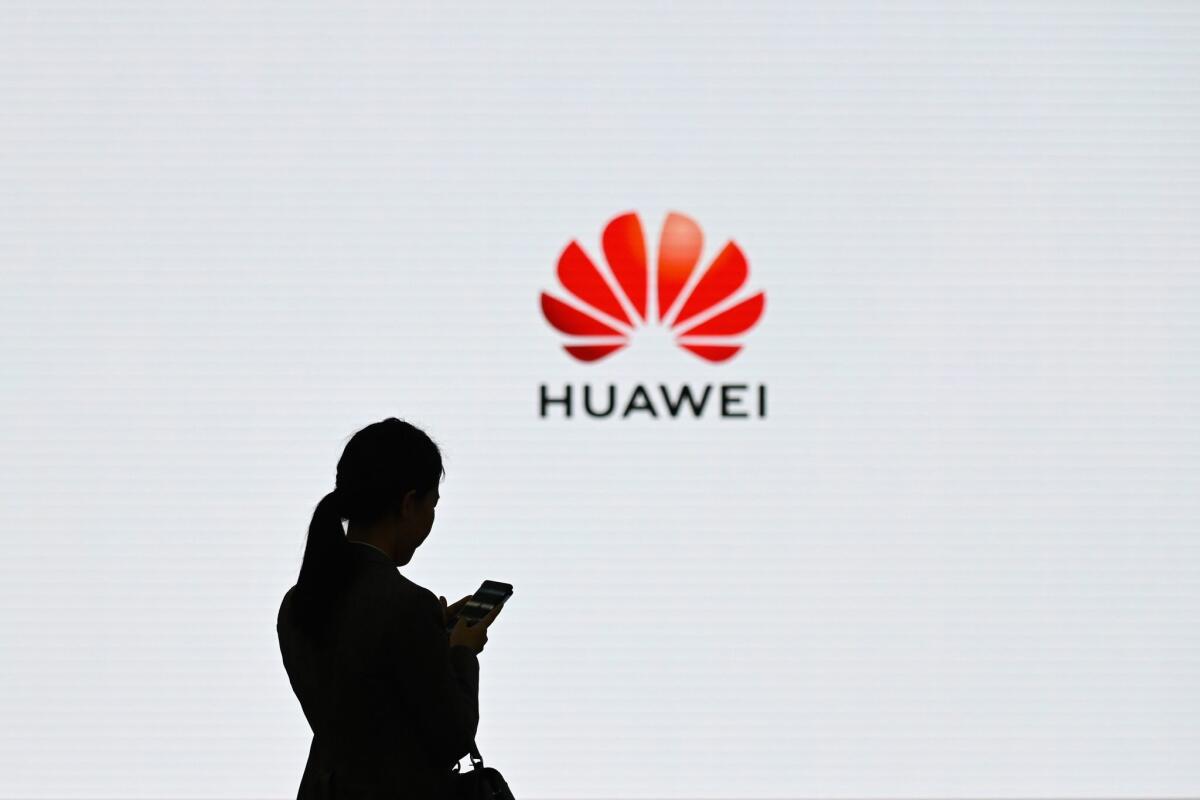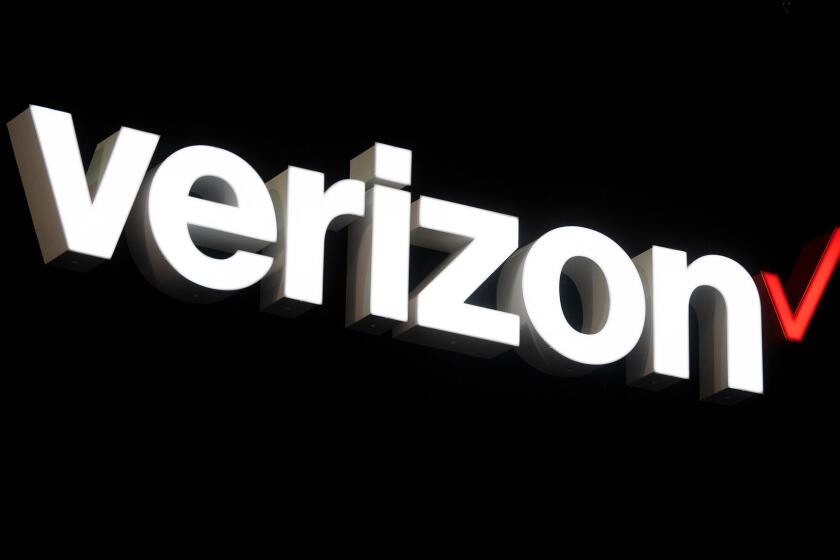China offers 5G discounts in race to scale up world’s biggest network

- Share via
China’s phone carriers offered discounts to subscribers after switching on the world’s largest 5G network Thursday, seeking to spur growth for an ultra-fast wireless system that’s key to technology supremacy.
The country’s three wireless operators need to attract users to help pay for infrastructure they’ve spent more than $43 billion on in this year alone. Although the technology is essential for developing industrial applications expected to drive a new digital economy, its faster speeds and lower lag times may be less compelling for consumers than previous upgrades.
On the launch day of fifth-generation services in Beijing’s financial district, stores were quiet as carriers said they expect more users to sign up online.
On the Twitter-like Weibo, “5G launching in 50 cities” and “5G package prices” were among the top-20 trending topics. But some Chinese consumers are balking at the high prices for handsets and service plans.
“I don’t have money to buy a 5G phone or to pay for a plan,” said Weibo user Yuanyao.
“Too expensive. I can’t afford it,” said another named XBACK-No fear.
In late 2017, Susan Crawford was visiting Seoul, South Korea, about six months before it hosted the 2018 Winter Olympics.
While carriers look to lure more users to pay up for faster services, China’s handset makers also stand to benefit from fast uptake.
Huawei Technologies Co., which also supplies the biggest slice of 5G network equipment, saw its smartphone market share jump to 42% in the third quarter, up from about 25% a year earlier, according to research firm Canalys. It has already introduced several 5G models, as have Chinese brands including ZTE, Xiaomi and Vivo.
Luring users to the world’s largest 5G networks may also help Chinese handset makers increase their global market share. Samsung Electronics Co. is the world’s top seller of smartphones, followed by Huawei and Apple Inc.
Huawei has already introduced models that work on the super-fast network in Britain and other markets in addition to China. On Wednesday, the Nikkei reported that Apple is telling suppliers that it expects to ship at least 80 million iPhones with 5G wireless modems next year.
In the U.S., T-Mobile US Inc. this week said it will flip on a nationwide 5G service by year end. Still, the carrier doesn’t yet offer a 5G compatible device and the service will be available only on one band of airwaves they are calling the “foundational layer,” with more layers of spectrum to come.
The largest U.S. wireless carrier, Verizon Communications Inc., launched 5G in April and has promised to have it available in parts of 30 cities this year. The “home internet” service is available in some parts of Los Angeles. Rival AT&T Inc. has 5G in areas of 21 cities, including L.A., and plans to offer 5G nationwide by mid 2020. Sprint Inc., which has limited 5G available in parts of L.A. and eight other cities, has promised a superior 5G network if its $26.5-billion merger with T-Mobile is approved.
As of Thursday, China Mobile Ltd. was offering discounts of as much as 30% for users that pre-registered for 5G. Consumers buying 5G handsets from the carrier will get as much as 600 yuan ($85) off and gifts worth 699 yuan, the biggest operator by users said in a statement.
Verizon Communications Inc. said Wednesday it has turned on its ultra-fast 5G wireless network in parts of Chicago and Minneapolis, though it’ll be available only to certain subscribers who pay a fee and own a compatible smartphone.
China Unicom Hong Kong Ltd., the No. 3 carrier, and No. 2 China Telecom Corp. are also offering similar discounts to pre-registered users, along with other discounts and gifts via online lotteries and through their branches throughout the country.
South Korea’s wireless carriers were the first to offer commercial 5G services, with SK Telecom Co. launching its network in April and Samsung already offering a 5G-enabled smartphone. Total 5G subscribers have surpassed 3 million in the country, although consumer reaction has been mixed.
The faster network’s coverage was initially incomplete, leaving users to fall back on 4G more than some had expected, especially when using the service indoors.
South Korean carriers SK Telecom, KT Corp. and LG Uplus Corp., have also sought to entice new users to adopt the technology, offering trade-ins and incentives that slash the price of new 5G phones to less than $200 from sticker prices of as much as $1,000. The subsidies have declined as the rollout expanded, said Kim Hee Sup, vice president at SK Telecom.
“It’s true that the speed and coverage of 5G didn’t meet consumers’ expectations in early days,” Kim said. “Now, the 5G service is rapidly improving as carriers are expanding the roll-out.”
Zhao and Yuan write for Bloomberg.
More to Read
Inside the business of entertainment
The Wide Shot brings you news, analysis and insights on everything from streaming wars to production — and what it all means for the future.
You may occasionally receive promotional content from the Los Angeles Times.











